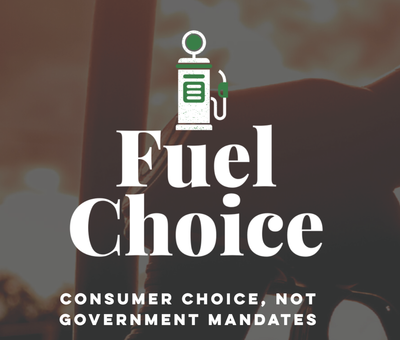Lower Carbon Emissions? Mazda Gets It - Its Not The Engine, Change The Fuel - Mazda to Participate in Motor Sports Race Powered by Next-Generation Biodiesel Fuel
SEE ALSO: Toyota's Chief Scientist on Hydrogen vs. Lithium-Ion Batteries & Why We Need Both
SEE ALSO: Hydrogen News and Tutorial Archive, It's Not MPG But MPG Of What?
SEE ALSO: The End Of The Internal Combustion Engine? Really?
SEE ALSO: There's nothing wrong with the internal combustion engine that a better fuel won't fix. Don't throw the baby out with the bath water!
In efforts to realize carbon neutrality, Mazda Motor Corporation aims to popularize the use of next-generation biodiesel fuels and will participate in the Super Taikyu Race in Okayama to be held at the Okayama International Circuit on Saturday, Nov. 13 and Sunday Nov. 14, where Mazda will enter a racecar with a conventional diesel engine (Skyactiv-D 1.5) that runs on 100% bio-based fuel made from used cooking oil and microalgae fats. From next year, Mazda will step up its efforts and participate in all rounds of the endurance race throughout the season.
To achieve carbon neutrality, Mazda believes it is important to offer customers a variety of options. With this in mind, Mazda intends to expand its powertrain lineup by investing not only in conventional hybrids, diesel engine models, and EV models but also plug-in hybrid models while promoting initiatives in renewable fuels such as next-generation biodiesel fuels.
Next-generation biodiesel fuels, which are made from sustainable raw materials such as microalgae fats and used cooking oil, do not compete with the human food supply (WRONG! Come on Mazda WTF), which has been an issue with existing biodiesel fuels, and because these fuels can also be used as alternatives to diesel fuel in existing vehicles and equipment without any modification, no additional fuel supply infrastructure is required. Therefore, biodiesel fuels can be expected to play a prominent role as an excellent liquid fuel source in promoting carbon neutrality.
Mazda is a member of the Hiroshima "Your Green Fuel" Project, a demonstration project in Hiroshima for popularizing and spreading the use of next-generation biofuels jointly run by the Hiroshima Council for Automotive Industry-Academia-Government Collaboration (Hirojiren)1 as an activity of the Energy Expert Subcommittee and Euglena Co., Ltd.2 (Euglena: headquartered in Minato-ward, Tokyo, President: Mitsuru Izumo). The project aims to establish a model for revitalizing regional areas by retaining the entire value chain of carbon neutral fuels from the manufacture and supply of raw materials through to fuel use within the Hiroshima area. In August 2020, the project confirmed that the performance of this biodiesel fuel was on a par with petroleum-based diesel fuel, and Mazda commenced using it in company cars with diesel engines.
And now, the Skyactiv-D 1.5 engine, installed in the Mazda vehicle that will compete in the Super Taikyu Race this time, will be capable of demonstrating peak performance even running on next-generation biodiesel fuel without any engine modifications. In a demonstration test of a next-generation biodiesel fuel derived entirely from biomaterials, the racecar "Mazda Spirit Racing Bio concept Demio" will participate in the ST-Q class running on a biofuel called "Susteo" supplied by Euglena and with the cooperation of the NOPRO3 racing team. The plan is to receive fuels from Euglena for the next season as well. The Super Taikyu Races have been held since 1991 as endurance races for mass-produced cars, and the ST-Q class is a class open to cars developed by manufacturers and approved by the Super Taikyu Organizing Committee. In addition to Mazda, Toyota Motor Corporation is also participating with a hydrogen-powered car.
Under its corporate vision, Mazda aims to be a brand that continues to share a special bond with customers by providing cars that enrich their lives with the sheer pleasure of driving while at the same time continuing to pursue the challenge to attain carbon neutrality in 2050.
- 1. Hirojiroen coordinates the overall demonstration project, promotes use of local resources as raw materials, promotes renewable energy-related projects in the region, and supplies fuels to companies and organizations that use biodiesel fuel for official vehicles and company cars. Biodiesel fuel is used in some public and company vehicles.
- 2. A bio-venture company that develops and sells foods and cosmetics that utilize microalgae Euglena, etc., researches biofuel production, and provides gene analysis services. It collaborates with Mazda through Hiroshima "Your Green Fuel" Project and will supply fuels to support Mazda's participation in the upcoming Super Taikyu Race.
- 3. A racing team (Nogami Project Co.,Ltd., Representative: Toshihiko Nogami) that has been participating in the Super Taikyu Race since 2015 with Demio (Skyactiv-D 1.5).
Alternative Fuels and Advanced Vehicles
More than a dozen alternative fuels are in production or under development for use in alternative fuel vehicles and advanced technology vehicles. Government and private-sector vehicle fleets are the primary users for most of these fuels and vehicles, but individual consumers are increasingly interested in them. Using alternative fuels and advanced vehicles instead of conventional fuels and vehicles helps the United States conserve fuel and lower vehicle emissions.

Biodiesel
Biodiesel is a renewable fuel that can be manufactured from vegetable oils, animal fats, or recycled cooking grease for use in diesel vehicles.

Electricity
Electricity can be used to power plug-in electric vehicles, which are increasingly available. Hybrids use electricity to boost efficiency.

Ethanol
Ethanol is a widely used renewable fuel made from corn and other plant materials. It is blended with gasoline for use in vehicles.

Hydrogen
Hydrogen is a potentially emissions- free alternative fuel that can be produced from domestic resources for use in fuel cell vehicles.

Natural Gas
Natural gas is a domestically abundant gaseous fuel that can have significant fuel cost advantages over gasoline and diesel fuel.

Propane
Propane is a readily available gaseous fuel that has been widely used in vehicles throughout the world for decades.
Emerging Fuels
Several emerging fuels are considered alternative fuels under the Energy Policy Act and may be under development or already developed and available in the United States.





